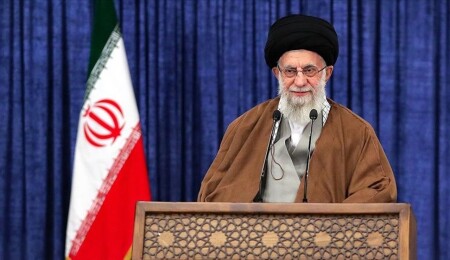Iran’s Presidential Election Dominated by Khamenei Loyalists

Iranians choose a president on Friday in a tightly controlled election following Ebrahim Raisi’s death in a helicopter crash last month, with the outcome expected to influence the succession to Ayatollah Ali Khamenei, Iran’s top decision-maker.

With Iran’s supreme leader now 85, it is likely that the next president will be closely involved in the eventual process of choosing a successor to Khamenei, who has ensured candidates sharing his hardline views dominate the presidential contest.
The election coincides with escalating regional tensions due to the Israel-Hamas conflict, increased Western pressure on Iran over its rapidly advancing nuclear programme, and growing domestic dissent over political, social, and economic crises.
However, the looming succession to the fiercely anti-Western Khamenei is the overriding concern among Iran’s clerical elite.
The Guardian Council, a hardline vetting body of clerics and jurists aligned to Khamenei, has approved five hardliners and one low-profile moderate candidate from an initial pool of 80.
Prominent among the hardliners are Mohammad Baqer Qalibaf, parliament speaker and former head of the powerful Revolutionary Guards, and Saeed Jalili, a former nuclear negotiator.
The sole moderate candidate, Massoud Pezeshkian, has the endorsement of Iran’s politically-sidelined reformist camp that advocates detente with the West.
The fiercely anti-Western Khamenei has not backed any candidate publicly. However, in a televised speech on Tuesday he said: “One who thinks that nothing can be done without the favour of America will not manage the country well.”
His adviser Yahya Rahim Safavi has urged voters to elect “a president whose views do not conflict with those of the supreme leader,” state media reported.
“The people should choose a president who considers himself the second in command … The president should not create division,” said Safavi, a former chief commander of the Guards.
While the president’s role has a high international profile, real power rests with the supreme leader, who has the final say on state matters like foreign or nuclear policies and controls all branches of government, the military, media and the bulk of financial resources.
Raisi was widely seen as a potential successor to Khamenei, and his sudden death has sparked a race among hardliners seeking to influence the selection of Iran’s next top leader.
Source: Reuters


Comments
Attention!
Sending all kinds of financial, legal, criminal, administrative responsibility content arising from illegal, threatening, disturbing, insulting and abusive, humiliating, humiliating, vulgar, obscene, immoral, damaging personal rights or similar content. It belongs to the Member / Members.